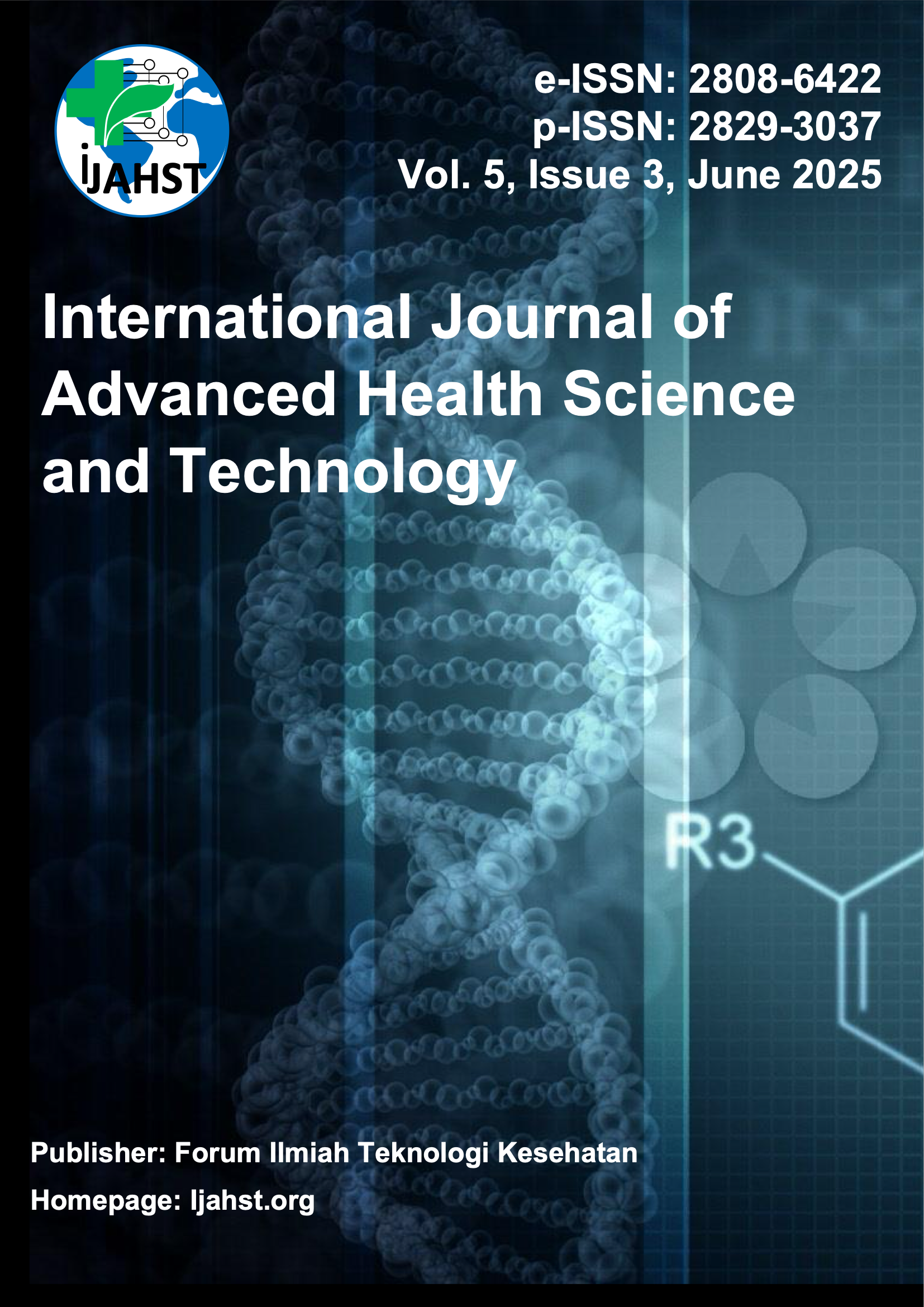Knowledge of Maintaining Dental and Oral Hygiene Using Grodio Dental Box Media for Blind Students in III-VI Grades at SLB A YPAB Surabaya
Abstract
Maintaining dental and oral hygiene is something important to do, especially for children with special needs such as blind people. However, blind children often find it difficult when they want to get information about maintaining dental and oral hygiene. The oral hygiene status of blind students is categorized as poor. This study was conducted to assess whether there are significant differences in knowledge regarding oral hygiene maintenance before and after counseling using the Grodio Dental Box media. This research uses a Quasi Experiment type of research: One-Group Pretest-Prosttest. The population in this study were 20 blind students. The data collection instrument used was a questionnaire sheet which was distributed before and after the counseling. The data analysis technique was tested using the SPSS data processing application with the Wilcoxon Test. The results of data analysis in this study using the Wilcoxon test showed that the Asymp Sig (2-tailed) value was 0.001 < 0.05, indicating that there is a difference in knowledge of dental and oral hygiene maintenance before and after using Grodio Dental Box media among blind students in grades III-VI at SLB A YPAB Surabaya. The level of knowledge of blind students after using Grodio Dental Box media is in the good category
Full text article
Authors
Copyright (c) 2025 Fidinova Ika Putri Sang'adji

This work is licensed under a Creative Commons Attribution-ShareAlike 4.0 International License.
Authors who publish with this journal agree to the following terms:
- Authors retain copyright and grant the journal right of first publication with the work simultaneously licensed under a Creative Commons Attribution-ShareAlikel 4.0 International (CC BY-SA 4.0) that allows others to share the work with an acknowledgement of the work's authorship and initial publication in this journal.
- Authors are able to enter into separate, additional contractual arrangements for the non-exclusive distribution of the journal's published version of the work (e.g., post it to an institutional repository or publish it in a book), with an acknowledgement of its initial publication in this journal.
- Authors are permitted and encouraged to post their work online (e.g., in institutional repositories or on their website) prior to and during the submission process, as it can lead to productive exchanges, as well as earlier and greater citation of published work (See The Effect of Open Access).

